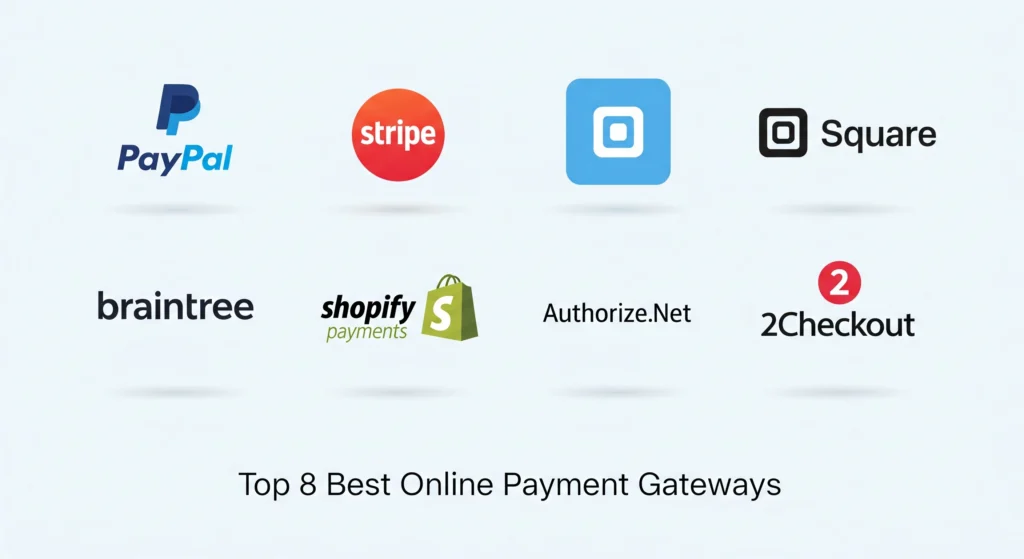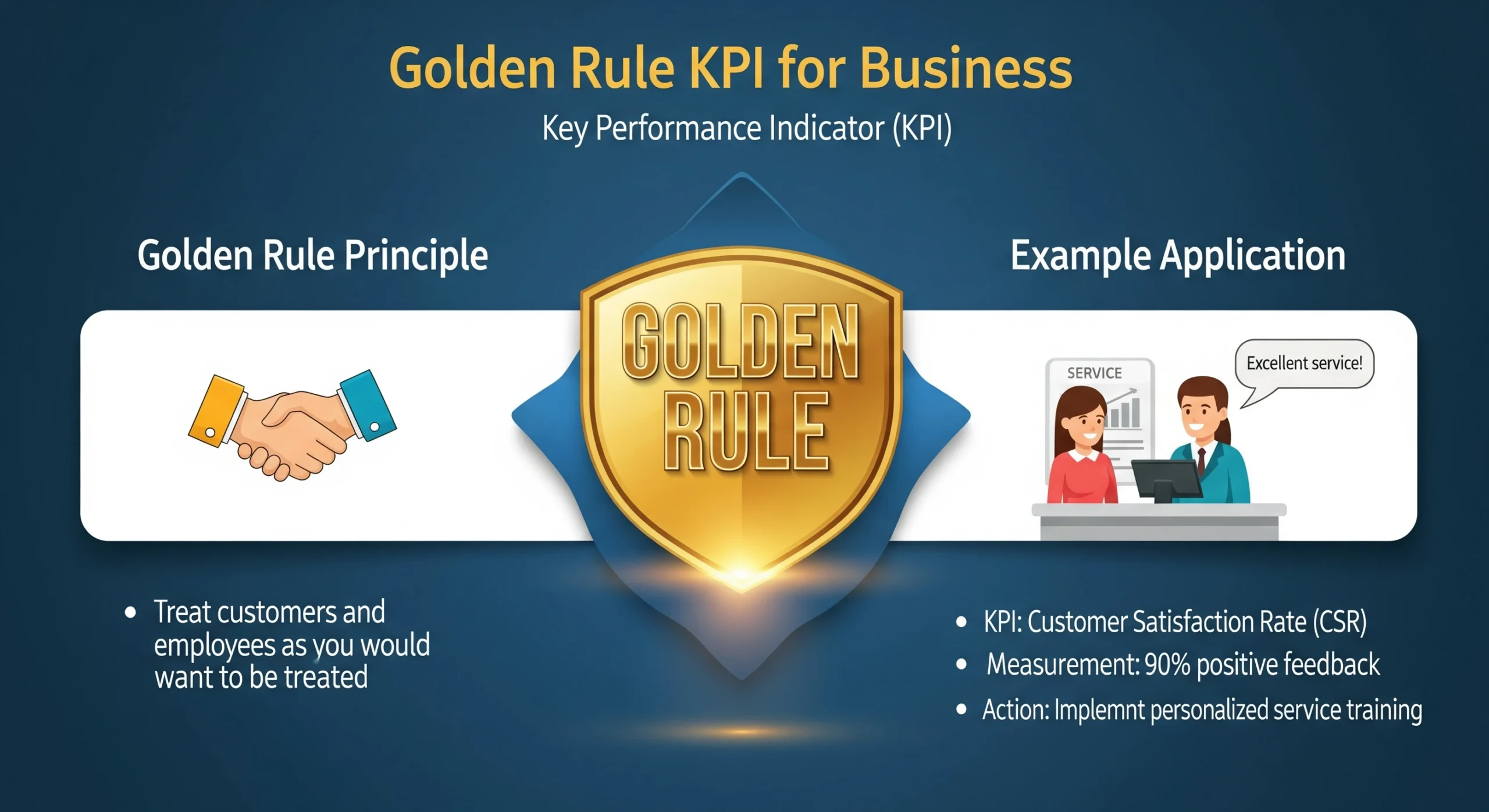I will explore top 8 best online payment gateway in 2025. Basically following Razorpay, Stripe, PayU, PhonePe, Cashfree, CCAvenue, EnKash, and PayPal are highly rated for their security payment gateways, which are versatility, and ease of integration for businesses of all sizes.
Best Online Payment Gateway Overview
Based on recent expert analyses from reputable sources such as Forbes Advisor, NerdWallet, TechRadar, and Shopify, here are the top 8 online payment gateways for 2025. These platforms were selected for their ease of integration, global availability, robust security standards (including PCI DSS compliance), competitive transaction fees, and scalability for e-commerce businesses of all sizes.

The focus is on versatile gateways that support major credit cards (Visa, Mastercard, American Express) as well as digital wallets like Apple Pay and Google Pay.
10 best online payment gateway
Here are 8 top online payment gateways in 2025, with their key pros, cons, and features to help you choose the right one for your business.
1. Stripe
A developer-focused payment platform offering powerful APIs for seamless custom integrations—perfect for SaaS, e-commerce, and marketplace businesses. It provides built-in tools for subscriptions, invoicing, and fraud prevention through Radar.
Pricing: 2.9% + $0.30 per online transaction (volume discounts available); no setup fees.
Best for: Tech-savvy and global e-commerce businesses seeking advanced fraud protection, multi-currency support, and highly customizable developer APIs for subscription-based models.
Pros and Cons of Stripe
Pros:
- Highly customizable with seamless integrations (e.g., WooCommerce, Shopify)
- Developer-friendly APIs for flexible, custom setups
- Supports global payments and multiple currencies
- Advanced analytics, automated payouts, and strong fraud detection
- Scalable for international growth
Cons:
- Steeper learning curve for non-technical users
- Slightly higher fees for international or cross-border transactions (1–2% extra)
More Details: PCI DSS Level 1 compliant with end-to-end encryption. Integrates with over 100 platforms and offers 24/7 email and chat support. Best suited for tech-savvy teams managing $10K+ in monthly volume.
2. PayPal
This is well known and A widely trusted option for fast, secure checkouts. You can easily check PayPal balance or guest credit/debit cards details on using Paypal payment gateway online. Ideal for small online stores, freelancers, and cross-border transactions, with built-in buyer and seller protection.
Pricing: 2.9% + $0.49 per domestic card transaction; 3.49% + $0.49 for international payments. No monthly fees for standard accounts.
Best for: Small businesses and freelancers seeking a simple, reliable payment solution.
Pros and Cons of Paypal
Pros:
- Instant setup with easy integration into major platforms
- Highly trusted by consumers, helping reduce cart abandonment
- Supports 25+ payment methods, including Venmo and bank transfers
- Robust buyer and seller protection with excellent fraud monitoring
- Strong dispute resolution system
Cons:
- Higher fees for international or cross-border transactions (up to 4.4%)
- Occasional account holds for high-risk or unusual activity
More Details: Available in 200+ markets with tokenization for enhanced security. Integrates smoothly with eBay, Etsy, and QuickBooks. Includes phone and email support. Best suited for beginners or small businesses with under $50K in annual sales.
3. Square
This payment gateway is An all-in-one solution, which designed for hybrid businesses, combining an online store builder, invoicing, and POS tools in one platform. Ideal for small retailers or service providers looking to expand into e-commerce without added complexity.
Pricing: 2.9% + $0.30 per online transaction; 2.6% + $0.10 for in-person payments. Includes a free online store.
Best for: Brick-and-mortar stores and local service businesses seeking an easy online transition.
Pros and Cons of Square
Pros:
- All-in-one POS and payment platform with transparent pricing
- Free online store builder and no monthly fees or contracts
- Easy-to-use mobile app for on-the-go sales
- Automatic syncing of online and in-person inventory
- Free PCI compliance and chargeback protection up to $250
- Integrates with Google Workspace and QuickBooks
Cons:
- Limited international support
- Not suited for high-risk or high-volume international businesses
- Offers fewer advanced customization options compared to developer-centric gateways like Stripe
More Details: Features end-to-end encryption at the reader level and 24/7 support via phone and app. Best for startups and small retailers with both online and in-person sales channels.
4. Authorize.Net
A trusted and established online payment gateway built for secure card-not-present transactions, offering virtual terminals, recurring billing, and robust invoicing. Ideal for mid-sized B2B and subscription-based businesses, Authorize.Net provides advanced fraud protection, reliable API integration, and a user-friendly dashboard. It supports multiple payment types and operates across various global regions.
Pricing: $25/month gateway fee plus standard processing rates (~2.9% + $0.30 per transaction). Optional $49 setup fee.
Best for: Established businesses seeking a dependable, secure, and scalable payment solution.
Pros and Cons Authorize.Net
Pros:
- Highly secure with support for eChecks, ACH payments, and fraud filters
- Includes a Customer Information Manager for storing customer profiles securely
- Offers recurring billing, detailed reporting, and a virtual terminal for phone or manual orders
- Compatible with multiple merchant accounts and integrates with QuickBooks and Magento
- PCI validated for strong compliance and data protection
Cons:
- Monthly gateway fee may not suit low-volume merchants
- Outdated interface and setup can take up to 8–10 days
- Primarily optimized for U.S.-based businesses
More Details:
Provides reliable fraud prevention, steady performance, and weekday phone support. Best suited for established U.S. businesses with consistent transaction volume and a focus on security and recurring billing.
5. Payoneer Payment Gateway
Payoneer Payments is a global payment gateway offering secure, fast, and flexible transaction solutions. It supports multiple currencies and integrates with major platforms, making it ideal for freelancers and businesses. With low fees and wide reach, it simplifies cross-border payments while ensuring compliance and user-friendly service.
Key features include customizable POS systems, recurring billing, fraud prevention, and e-commerce integrations, with a focus on quick onboarding (as little as 48 hours) and seamless scalability.
Pros and Cons of Payoneer
Pros:
- Fast onboarding (typically within 48 hours), allowing businesses to start accepting payments quickly
- Highly customizable solutions tailored to specific industries (e.g., HIPAA-compliant options for healthcare)
- Transparent pricing and 24/7 expert support for reliable assistance
- Comprehensive channel coverage — supports POS, online, and mobile payments with tools for recurring billing and inventory synchronization
- Global reach, supporting 150+ currencies across 200+ countries
- No monthly fees or setup costs for standard accounts
- Multi-currency accounts (USD, EUR, GBP, and more) with direct bank transfers to local accounts
- Marketplace integrations with platforms like Amazon, Upwork, and Fiverr
- Scalable for all business sizes, from freelancers and startups to large enterprises
Cons:
- Pricing not publicly listed, requiring custom quotes that may delay decisions for smaller businesses
- Primarily U.S.-centric, with limited details on multi-currency or international merchant support compared to global gateways like Stripe
- Higher conversion fees on currency exchanges and potential setup costs for specialized industries
- Limited POS functionality, making it less suitable for in-person sales
- Occasional account holds or freezes reported by users
- Lacks advanced analytics or AI-driven tools found in some enterprise payment platforms
- No direct invoicing feature, requiring payment requests instead
Best For: Freelancers, international sellers, and service-based businesses seeking cross-border payments, customized solutions, and reliable multi-channel support without complex setup requirements.
6. Shopify Payments
Built natively for Shopify, this gateway offers one-click checkouts, seamless integration, and abandoned cart recovery, making it ideal for Shopify merchants selling physical or digital products.
Pricing: 2.9% + $0.30 per transaction on the Basic plan, reduced to 2.5% + $0.30 on higher tiers. Fees are included in Shopify’s subscription plans (ranging from $29 to $2,000/month).
Best For: Shopify merchants seeking an integrated, all-in-one payment solution with global scalability and advanced checkout features.
Pros and Cons of Shopify
Pros:
- Seamless integration with Shopify—no extra setup required
- No transaction fees for payments processed through Shopify Payments
- Supports multiple payment methods, including credit cards, crypto (e.g., USDC), and Buy Now, Pay Later options via Shop Pay Installments
- Built-in fraud analysis, multi-currency auto-conversion, and real-time analytics
- Designed for fast, secure checkouts that reduce cart abandonment
Cons:
- Available only in select countries
- Requires an active Shopify subscription
- Extra 0.5–2% fees apply if using third-party gateways
- Limited flexibility outside the Shopify ecosystem
More Details: Level 1 PCI compliant with 3D Secure authentication, integrates with 100+ Shopify apps, and includes email and chat support. Best suited for growing e-commerce stores scaling toward $100K+ in annual revenue.
7. Adyen
An enterprise-grade global payment platform built for large brands expanding across markets, such as Uber. Adyen enables seamless, secure, and unified payments across online, in-person, and mobile channels, supporting 250+ payment methods, including cards, digital wallets, and local options.
Pricing: Interchange + 0.60% + $0.13 per Visa/Mastercard transaction; custom rates available for high-volume merchants. No setup fees.
Pros and Cons of Adyen
Pros:
- Global coverage, supporting 150+ currencies and a wide range of local payment methods
- Omnichannel capability with a unified dashboard for managing online, in-store, and mobile transactions
- Optimized payment routing for lower fees and faster settlements
- Advanced AI-driven fraud prevention and risk scoring tools
- Transparent Interchange++ pricing model, offering clear cost breakdowns
- Enterprise-grade integrations with platforms like Salesforce and BigCommerce
- End-to-end encryption and compliance with 3DS 2.0 standards
- Access to dedicated account managers for personalized support
Cons:
- Complex setup process, requiring technical expertise for full customization
- Not ideal for small or low-volume merchants due to enterprise-level focus
- Pricing not publicly listed; custom quotes may slow decision-making
- Limited local support in some emerging markets
Best For: Large enterprises and global brands processing $1M+ annually, seeking a scalable, secure, and unified payment infrastructure across multiple regions and channels.
8. Razorpay
Razorpay is an India-based full-stack payment platform serving 8M+ businesses across e-commerce, SaaS, BFSI, and startups. It enables online/offline payments, automated payouts, subscriptions, and financial tools like RazorpayX for payroll and vendor management. Known for fast onboarding, robust APIs, and localized features like UPI, it’s ideal for startups and SMEs in India and emerging markets expanding globally.
Pricing: 2% + 18% GST per domestic transaction (cards, UPI, netbanking, wallets); ~3% for international payments. No setup or monthly fees; volume discounts and custom enterprise plans available.
Pros and Cons of Razorpay
Pros:
- Fast onboarding with easy API and plugin integrations for web and mobile apps
- Supports 100+ payment options, including UPI, cards, wallets, EMI, and QR codes
- User-friendly dashboard for tracking payments, refunds, and settlements in real time
- Compliant with PCI DSS Level 1 and GDPR, featuring AI-powered fraud detection
- Scalable ecosystem with tools like Optimizer, Magic Checkout, and RazorpayX for payroll and payouts
- Competitive pricing and strong local payment support in India
Cons:
- Limited international presence compared to global players like Stripe or PayPal
- Customer support may be slow to respond for standard users
- Occasional settlement or onboarding delays due to verification processes
- Higher transaction fees for low-volume or international users
Best For:
Startups, SMEs, and mobile-first businesses in India and Southeast Asia looking for a secure, all-in-one payment platform optimized for UPI and local transactions with scalable automation tools.
Conclusion
In 2025, Stripe rules global e-commerce with unmatched APIs, PayPal wins trust, Square owns omnichannel retail, and Shopify Payments powers seamless stores. Razorpay dominates India via UPI magic, while PioneerEpay delivers 48-hour US setups for SMBs. All are PCI-safe, fraud-smart, and scale-ready. Pick by need:
- $0–$10K/mo → PayPal/Square (zero fees).
- India → Razorpay (2%).
- Custom → Stripe/Adyen. Test integrations, enable 3DS, and watch cart abandonment drop 20%. One gateway, endless growth—choose today, thrive tomorrow. Stripe and Adyen dominate for tech-savvy enterprises with international ambitions, offering robust APIs and fraud tools.
In conclusion, selecting the ideal online payment gateway in 2025 hinges on your business size, location, volume, and priorities—whether global scalability, low fees, or seamless integrations. Ultimately, the “best” gateway aligns with your growth trajectory—start simple, scale smart, and prioritize security to boost conversions and customer loyalty.





Leave a Reply